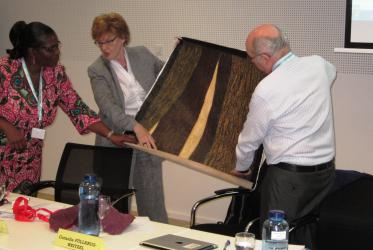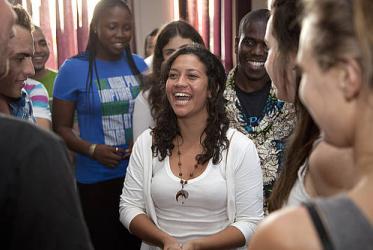Displaying 21 - 40 of 44
G7 must address famine
22 May 2017
In Ghana, women bring open minds, honest words
05 July 2016
Land rights focus of panel discussion
17 November 2015
Youth and church activists highlight peace pedagogy
28 August 2015
Preventing violence and HIV pandemic in Nigeria
19 April 2012
Faith communities promote “safe spaces” to discuss health issues
19 January 2012
Youth promise active involvement for environmental justice
14 December 2011










